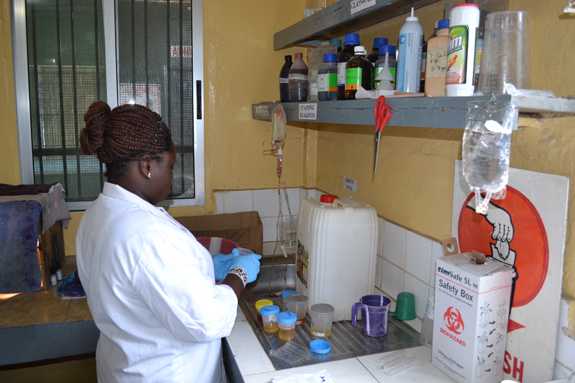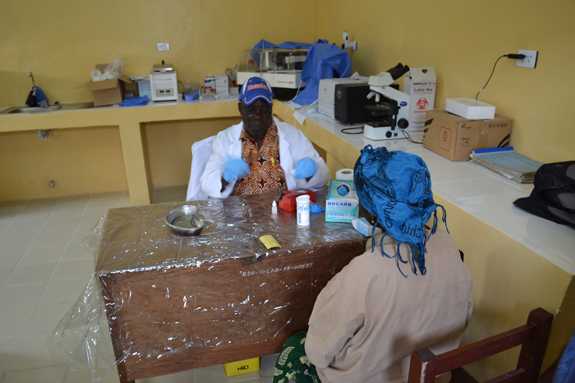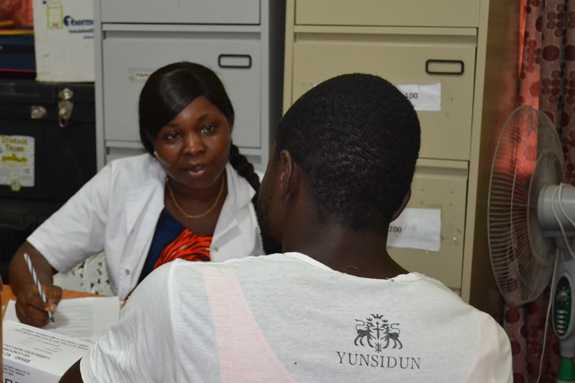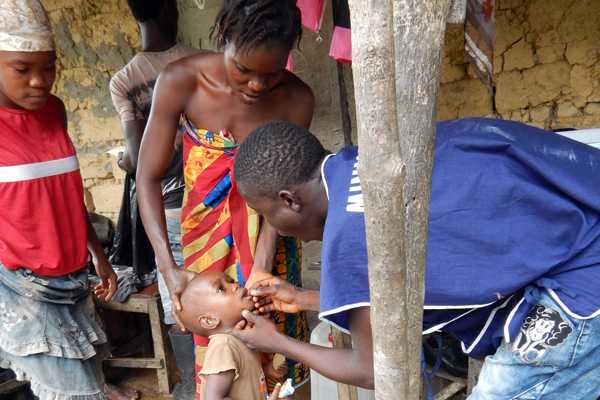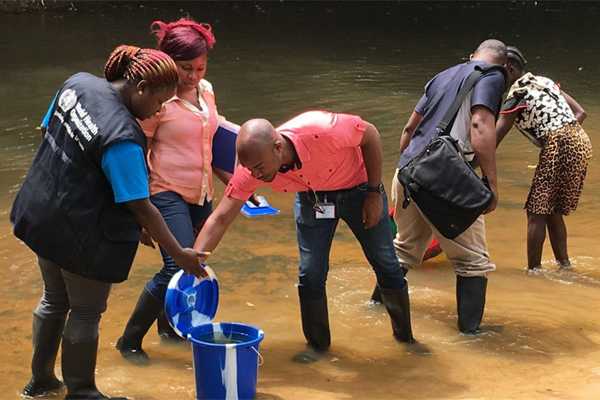Global Health Security in Liberia
Building Response Capabilities in Liberia after Ebola
CDC works with the Government of Liberia and partners to improve health systems and outcomes by building on existing capacities, as well as those that were developed during the response to the Ebola epidemic. During the recovery, efforts continue to help strengthen those public health systems created as a result of the epidemic and to support specific programs that meet the needs of Ebola survivors.
Our activities support the Global Health Security Agenda (GHSA), which aims to improve countries’ abilities to prevent, detect, and respond to health threats. In Liberia, we are doing this by focusing on key activities to:
- build surveillance systems that monitor cases of infectious diseases
- improve the safety and quality of national laboratory systems
- develop the skills of the public health workforce
- establish emergency operations centers that can quickly launch coordinated response to a public health threat.
The 2014-2015 Ebola epidemic in West Africa was the largest in history. Liberia and the other affected countries suffered significant loss of human life that continues to impact communities and health systems. In the wake of the outbreak, there have been a number of additional cases/clusters of Ebola. CDC assists with detection and control of these cases/clusters, while supporting research and programs designed to meet the needs of survivors. Our experience in Liberia has demonstrated the importance of having the capacity to detect and respond to health threats early and close to the source, stopping future outbreaks before they become epidemics.
Contact Information
CDC Media Relations
(404) 639-3286
media@cdc.gov
Spokespersons
John T. Redd, MD, MPH, FACP, CAPT, U.S. Public Health Service
Biography
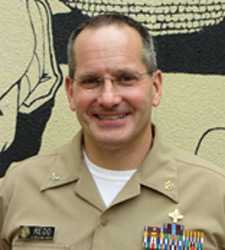
“The devastating 2014-2015 Ebola epidemic showed us that in today’s interconnected world, health events in distant countries can rapidly threaten global health security. Liberia’s ability to respond to health threats has improved a great deal, but there is still more work to do. CDC and partners continue to work closely with the Liberian Ministry of Health to strengthen the country’s ability to prevent health threats, detect potential outbreaks, and respond rapidly to emergencies.”
John T. Redd, MD, MPH, FACP, CAPT, U.S. Public Health Service – Medical Epidemiologist, Centers for Disease Control and Prevention
Desmond Williams, MD, PhD
“The Ebola outbreak is a good example of what the Global Health Security Agenda is designed to address. Through our work on GHSA, the people and government of Liberia are now in a position to detect and quickly respond to sporadic outbreaks of Ebola. This capability is a direct result of strengthening surveillance, lab and sample transport systems, implementing emergency management systems, training surveillance officers with CDC’s Field and Epidemiology Training Program, and training health care workers on how to safely provide care for the people of Liberia without putting themselves at risk.”
Desmond Williams, MD, PhD CDC Country Director, Liberia
Related Links
- Chronology of Ebola Outbreaks
- Ebola Responder Stories
- CDC’s International Ebola Response
- CDC’s Domestic Ebola Response
- Cost of the Ebola epidemic
- Global Health Security
- CDC and the Global Health Security Agenda
- Global Health – Liberia
Scientific articles:
- Safer Countries Through Global Health Security. Lancet. 2014 Mar 1; 383(9919):764-6.
- Global Health Security: the Wider Lessons from the West African Ebola Virus Disease Epidemic , Lancet. 2015 May 9; 385 (9980): 1884 – 1901.
- Rapid Response to Ebola Outbreaks in Remote Areas – Liberia, July-November 2014, MMWR. 2015;64(7):188-192.
- Decreased Ebola Transmission after Rapid Response to Outbreaks in Remote Areas, Liberia, 2014. Emerging Infectious Diseases. 2015;21(10):1800-1807.
- Ebola and Its Control in Liberia, 2014-2015, Emerging Infections Diseases. 2016;22(2):169-177.
- Implementation of a National Semen Testing and Counseling Program for Male Ebola Survivors – Liberia, 2015-2016, MMWR. 2016;65(36):963-966.
- Prevention of sexual transmission of Ebola in Liberia through a national semen testing and counselling programme for survivors: an analysis of Ebola virus RNA results and behavioural data, The Lancet Global Health. 2016 October; 4(10):e736-e43.
Health communication materials:
- Infographics: CDC Advancing Global Health Security in Liberia
- Fact sheet: Ebola (Ebola Virus Disease)
- Fact Sheet: Implementing the Global Health Security Agenda
- Social Media Cards
- Story: Liberia Workforce Development (FETP) in Action
- Story: Liberia: The Journey to Redemption
- Story: Liberian Ebola Survivor Program Provides Education, Counseling, and Hope
- Page last reviewed: May 16, 2017
- Page last updated: May 16, 2017
- Content source:



 ShareCompartir
ShareCompartir
